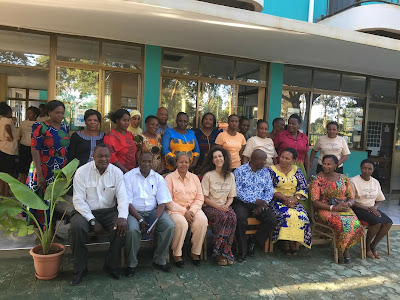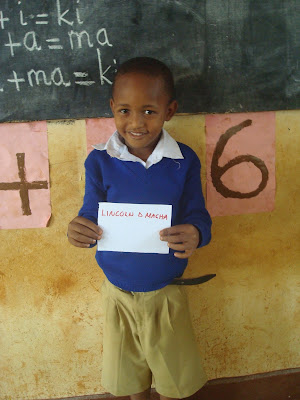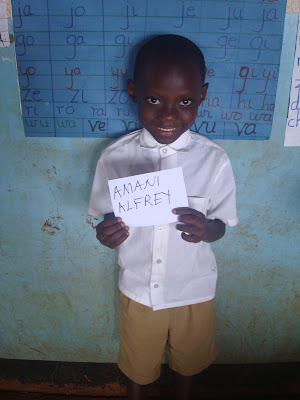I jest, but
honestly, doesn't it feel like these days EVERY day is a "special"
day? Somehow dedicated to some cause or person, a tribute to a giant
movement, a legendary or heroic figure, or something really teeny-tiny and and
made up of minutiae as small as those grains of sands??
I both
relish in and recoil from these "days." The same way I do
loaded holidays like my birthday and New Year's Eve. I hate to put too
much undue emphasis on any single given thing on any single given day.
It's too much pressure, too finite, too rigid for my loosey-goosey ways and
whims. The United Nations, however, disagrees....
Real suckers
for these remembrance days, the UN's got a busy calendar from International Day
of Commemoration in Memory of Victims of the Holocaust on January 27th to World
Cancer Day on February 4th to World Elder Abuse Awareness Day on June 15th to International
Day for the Abolition of Slavery on December 2nd. And all the "days
of our lives" that fall betwixt and between as well.
Obviously, I
believe in the causes and people that inspired these "days" - for the
most, that is; World Tuna Day on May 2nd may occasionally escape my notice -
but I'm not sure that up and designating a single day each year is necessarily
the most effective means of promoting mass awareness of an important cause or
person.
Additionally,
one cannot overlook the self-aggrandizement of a "United Nations Day"
each year on October 24th. (Can we all tell that I am underwhelmed with
the UN?)
However, in
the space of about six weeks, we will have celebrated three such days, that
actually do carry some importance for The Toa Nafasi Project.
On March
8th, we celebrated International Women's Day with an event at a local cafe in
Moshi. Many different NGOs attended along with Toa and it was a really
nice time to spend with other women and discuss the burgeoning new role of
women in the 21st century, in the wake of #MeToo and #TimesUp, and in the face
of great global change - socially, economically, and culturally.
The teachers enjoy looking at photos of themselves in print.
Teacher Leah was the standout of the group this IWD.
Here she is speaking about Toa to a group of schoolgirls
who passed by our stand.
And here is Leah talking to a group of mamas about our work, emphasizing the importance of parental involvement
in children's development and education.
She even got to use her Maasai roots as she spoke with a group of women from Simanjiro in their native tongue!
Teachers Leah and Dorcas welcomed special guests
Ester Rambau of the Moshi Municipal Education Office
and Grace Lyimo of Connects Autism Tanzania.
And over it all, TZ's own "gray lady," the nation's greatest lady,
Mount Kilimanjaro, looked over us all,
loaded with innuendo and evocation.
Mount Kilimanjaro, looked over us all,
loaded with innuendo and evocation.
On March 21st, we observed World Down Syndrome Day in conjunction with our long-time partner, The Gabriella Rehabilitation Center, a locally-run organization for children with special needs requiring self-enclosed classrooms and boarding facilities. I was not physically present, though there in spirit (and updated virtually and aggressively by Hyasinta who apparently has found her way to a new smart phone). It warmed my heart not only to be able to share in the festivities from afar, but to see the Toa staff embrace (without me there to nag and look over their shoulders!!) the purpose of this "day" and the children it recognizes.
The kids at Gabriella proudly display their banner
upon making their way from the center to a nearby school,
where the event was to take place.
The Gabriella kids are a motley crew with many differences in both learning and just being. The director, Brenda Shuma, does an exceptional job to make each child feel at home and supported.
She also provides counseling to parents and caregivers.
That's how you get well-adjusted little munchkins like these guys!
The obligatory #squadgoals shot.
I mean, we may be doing God's work,
but isn't it vitally important we look our best while doing it??
but isn't it vitally important we look our best while doing it??
Fashion show! Brenda loves to encourage kids in sport, art, music, and all kinds of extracurricular activities. Why not fashion?
This coming Monday, April 2nd, will be World Autism Awareness Day, a "day" that Toa has commemorated publicly many times in the past, but which we won't be this year simply due to poor timing. It is Easter Monday, and all parties have agreed that Moshi town won't turn out for the event the way they previously have. Better we celebrate Easter (well, Passover for me and some few others) and do a bigger push for "Usonji Day" next year.
However, I was informed that on the 21st, they also kind of observed autism in addition to Down Syndrome, so you know, the "day" hasn't been totally lost. And, for you readers out there with short memories, let me refresh you with some stories of Usonji Days past....
Until 2019, my friends....






















































